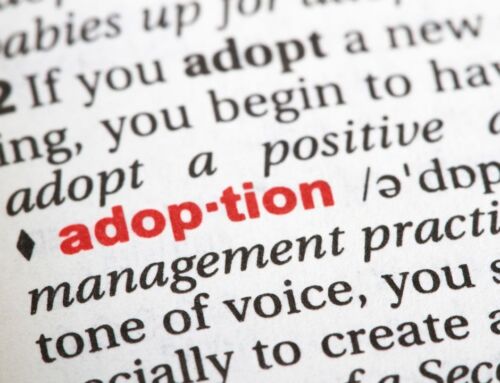Navigating Grief at the Holidays: Supporting Your Adopted Child
December 11, 2022

It is normal for adoptees to find themselves feeling sad or thinking more often about their biological families during the holiday season. This time of year can be fun and full of joy, but it also brings emotions that are less simple to navigate. Experiencing grief during the holidays is common, even within an adoptive family.
This grief stems from experiencing the loss of a biological family early in life, and even in a loving, secure adoptive family, grief will typically manifest in some way. As the child grows up, this can look different depending on the age and stage of life.
Recognizing Signs of Grief & Loss Emotions
For adoptive parents with young adopted children, here are some signs adoptees may present that might indicate your child is feeling a sense of grief or loss:
0-2 years: Children in this age group tend to cry, as they cannot express their emotions through words. As a parent, you can make sure that all their basic needs are being met. This is a good indicator that they are expressing their emotional distress through crying and/or being fussy.
3-6 year olds: At this age, children are more verbal and might use language to express the attachment they have with you or someone else close to them. For example, your child identifying the name they call you followed by a term of endearment you often say in your home.
6+ year olds: Children age 6 and over are verbal as well as more understanding of the world. They are typically able to process what is going on around them. This is when you, as the adult, are able to be more transparent and express the dynamic of the situation with their birth parents in a way they can understand.

Helping Adoptees Manage Grief
You can help your child navigate their grief by first acknowledging their feelings. Let them know that it is okay to feel whatever they feel and do not shame them for it. If your child is younger or is not verbally expressing their feelings, look for ways you can connect them with their birth parent or birth culture.
Creativity is often a good outlet that does not require words to convey emotion. If applicable, allow your child to explore feelings through art or drawing.
Mindfulness strategies can also be helpful and there are many options that are simple and kid-friendly. Get started with these great ideas
If your child has a birth culture that is different from that of their adoptive family, try incorporating aspects of it into your holiday celebrations. Strengthening the connection between the child and their culture can help establish confidence and start providing clarity from the beginning about who they are and where they come from.
If your child has a relationship with their birth parent(s), consider reaching out during this holiday season to facilitate communication or a visit. This can be therapeutic for the birth parent(s) and the child, and will ultimately strengthen the relationship between the adoptive family, the adoptee, and the birth family.
In general, it is good to validate how your child is feeling. Allowing them to experience their feelings and not be ashamed of the complicated emotions that accompany an adoption is the best way to support them during this beautiful and difficult time of year.








